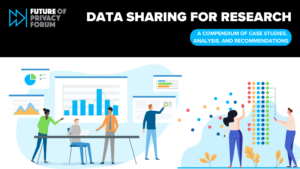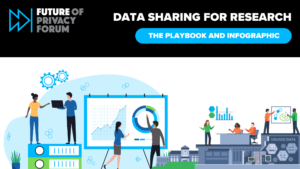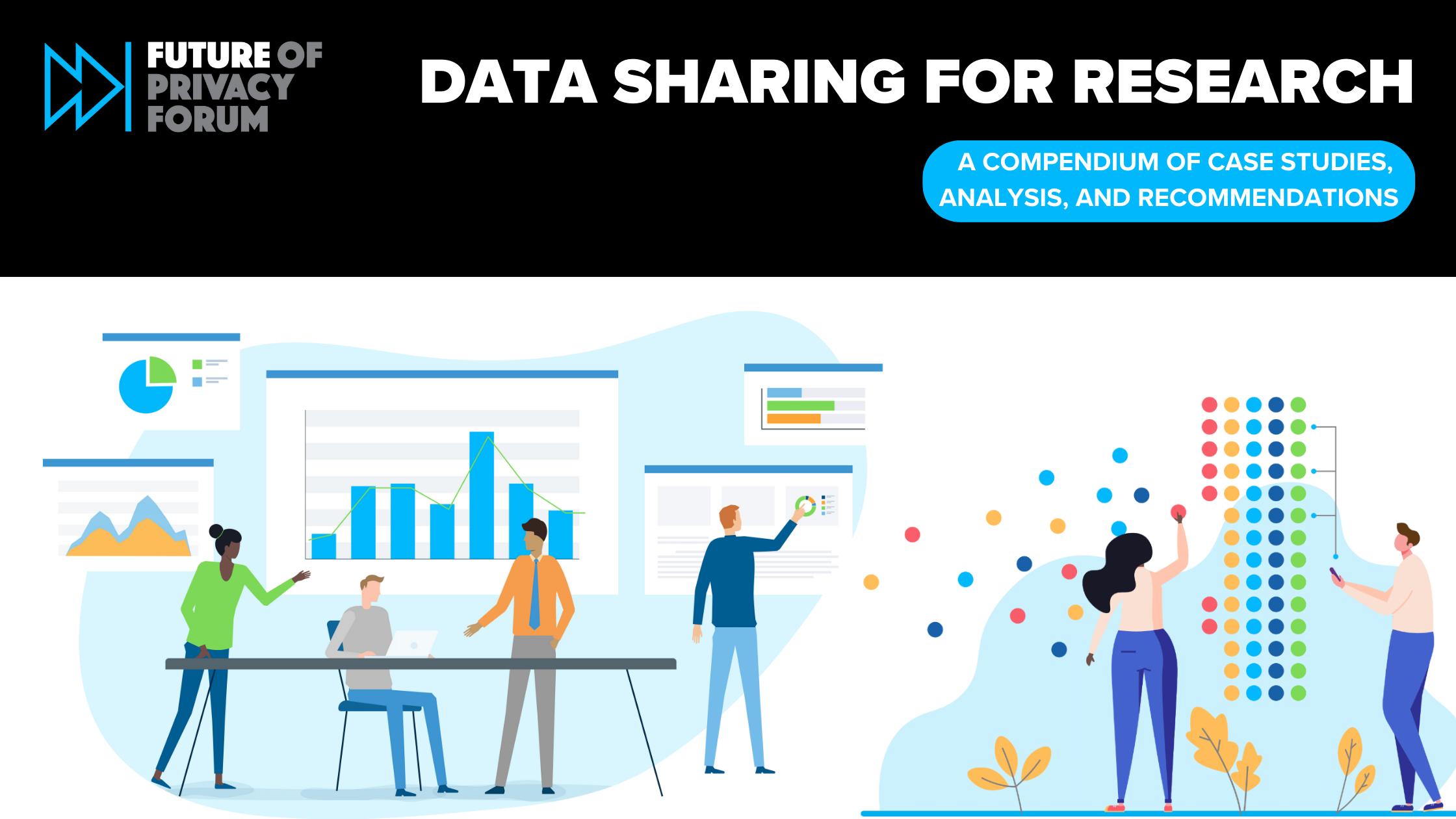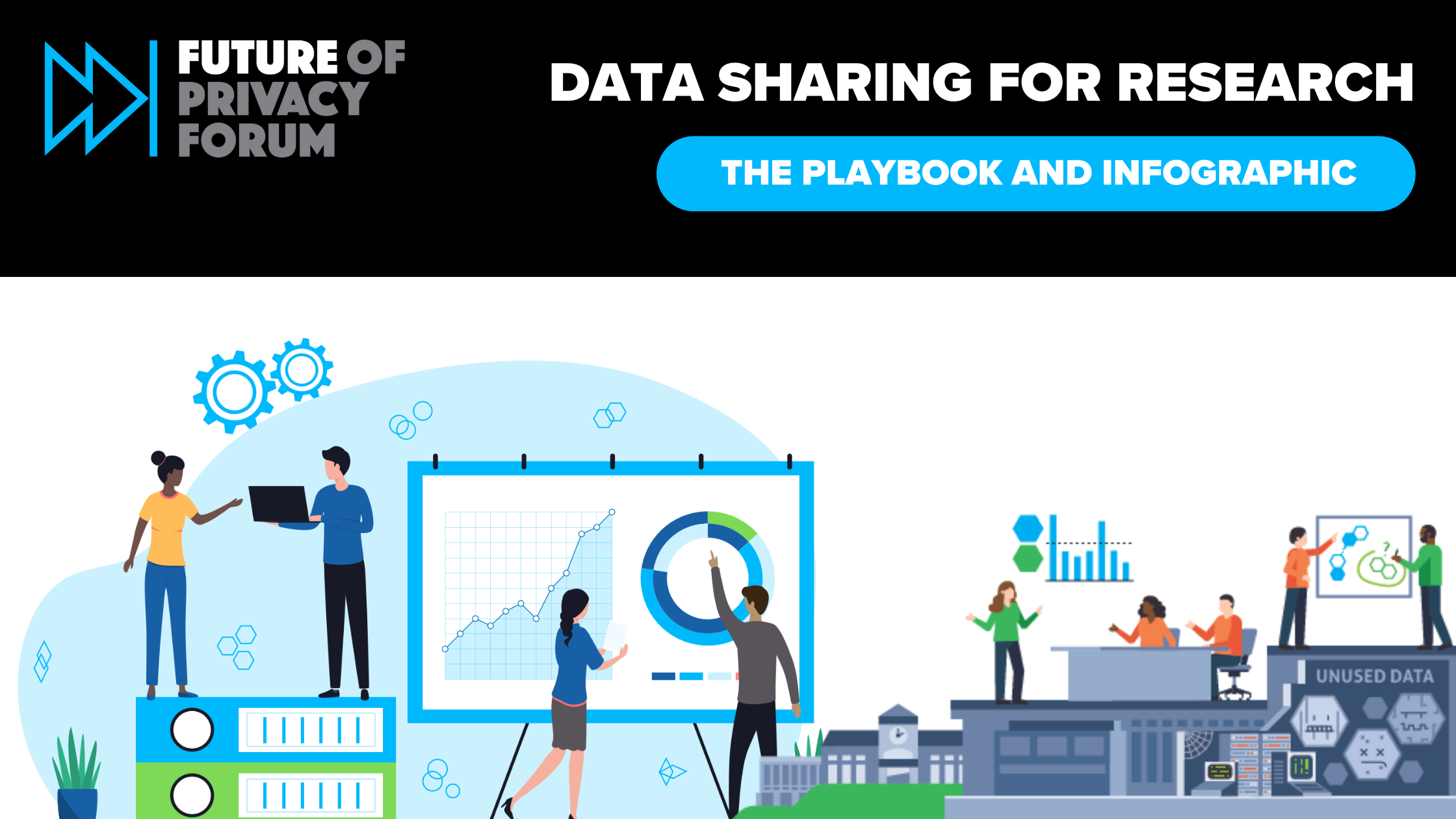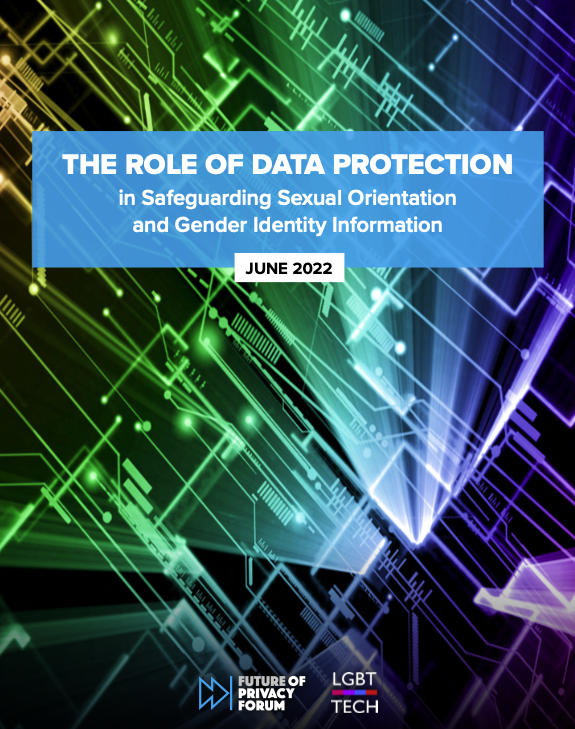Research often requires using sensitive data to answer important questions. The ethical collection and analysis of personal information can be challenging to do while still protecting the privacy of the implicated individuals, honoring informed consent, and complying with other legal obligations. The technology, policies, and ethical considerations for researchers are constantly shifting, sometimes making it difficult to keep up. That’s why FPF engages stakeholders across academia and industry to produce recommendations, best practices, and ethical review structures that promote responsible research. Our work is centered around streamlining, encouraging, and promoting responsible research that respects essential privacy and ethical considerations throughout the research lifecycle. FPF works with policymakers to develop legislative protections that support effective, responsible research with strong privacy safeguards, including hosting events that allow policymakers and regulators to engage directly with practitioners from academia, advocacy, and industry.
FPF also has an Ethics and Data in Research Working Group. This group receives late-breaking analysis of emerging legislation affecting research and data, meets to discuss the ethical and technological challenges of conducting research, and collaborates to create best practices to protect privacy, decrease risk, and increase data sharing for research, partnerships, and infrastructure. Learn more and join here.
Featured
Future of Privacy Forum Partners on New National Science Foundation Large-Scale Research Infrastructure for Education
SafeInsights brings together digital learning platforms, institutions, and a world-class team to enable research studies to inform teaching and learning. May 1, 2024 ― The Future of Privacy Forum (FPF) has received a subaward on the newly announced National Science Foundation (NSF) SafeInsights project, a five-year, $90 million research and development (R&D) infrastructure grant for […]
Future of Privacy Forum Awarded National Science Foundation and Department of Energy Grants to Advance White House Executive Order on Artificial Intelligence
The Future of Privacy Forum (FPF) has been awarded grants by the National Science Foundation (NSF) and the Department of Energy (DOE) to support FPF’s establishment of a Research Coordination Network (RCN) for Privacy-Preserving Data and Analytics. FPF’s work will support the development and deployment of Privacy Enhancing Technologies (PETs) for socially beneficial data sharing […]
Navigating Cross-Border Data Transfers in the Asia-Pacific region (APAC): Analyzing Legal Developments from 2021 to 2023
Today, the Future of Privacy Forum (FPF) published an Issue Brief comparatively analyzing cross-border data transfer provisions in new data protection laws in the Asia-Pacific. Titled Navigating Cross-Border Data Transfers in the Asia-Pacific region (APAC): Analyzing Legal Developments from 2021 to 2023, the Issue Brief outlines key developments in cross-border data transfers in the Asia-Pacific […]
Data Sharing for Research: A Compendium of Case Studies, Analysis, and Recommendations
Today, the Future of Privacy Forum (FPF) published a report on corporate-academic partnerships that provides practical recommendations for companies and researchers who want to share data for research. The Report, Data Sharing for Research: A Compendium of Case Studies, Analysis, and Recommendations, demonstrates how, for many organizations, data-sharing partnerships are transitioning from being considered an […]
Optum & The Mayo Clinic Win the 2022 Award for Research Data Stewardship
Author: Randy Cantz, U.S. Policy Intern, Ethics and Data in Research and former Communications Intern at FPF On Wednesday, May 10, 2023, the Future of Privacy Forum (FPF) honored representatives from Optum and the Mayo Clinic for their outstanding corporate-academic research data-sharing partnership at the 3rd annual Awards for Research Data Stewardship. The awards honor […]
FPF Announces Recipients of the Third Annual Award for Research Data Stewardship
Today, the Future of Privacy Forum (FPF) — a global non-profit focused on data protection headquartered in Washington, D.C. — announced the winners of the third annual Award for Research Data Stewardship. FPF is a long-standing advocate for privacy-protective data sharing by industry to the research community to advance scientific insights and drive progress in […]
FPF Releases “The Playbook: Data Sharing for Research” Report and Infographic
Today, the Future of Privacy Forum (FPF) published “The Playbook: Data Sharing for Research,” a report on best practices for instituting research data-sharing programs between corporations and research institutions. FPF also developed a summary of recommendations from the full report. Facilitating data sharing for research purposes between corporate data holders and academia can unlock new scientific […]
New Report Promotes Accountability-Based Approach to Data Protection in the APAC Region
In recent years, there has been an uptick in new (comprehensive) data protection laws in the Asia Pacific (APAC). This trend introduces challenges for cross-border compliance, particularly for the industry, legal practitioners, and the community of data protection regulators. As a result of the difficulties, these stakeholders acknowledge that there is a need for greater […]
Call for Nominations Open: FPF’s Award for Research Data Stewardship
When companies share data with researchers in a way that protects data, the collaboration can unlock new scientific insights and drive progress in medicine, public health, education, social science, and many other fields. FPF is thrilled to announce the open nomination period for FPF’s 3rd Annual Award for Research Data Stewardship. The Award recognizes partnerships […]
Report Analyzes the Role of Data Protection in Safeguarding Sexual Orientation and Gender Identity Information
While digital technology has empowered LGBTQ+ individuals to find community and access services, the increasing availability and use of connected devices have also created new privacy risks for LGBTQ+ communities. Today, the Future of Privacy Forum (FPF), a global non-profit focused on data privacy and protection, and experts from LGBT Tech — a national, nonpartisan […]

